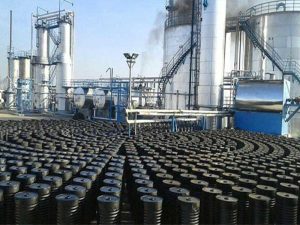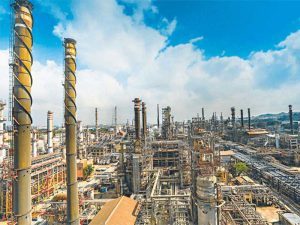The crude oil industry has been a cornerstone of global energy and economic systems for over a century. Despite growing concerns about climate change and the rise of alternative energy sources, crude oil continues to play a pivotal role in the global economy. However, the future of this vital resource is increasingly uncertain. This article explores the trends shaping the future of crude oil, the challenges it faces, and the opportunities that may emerge in an evolving energy landscape.
1. Global Demand for Crude Oil: Growth and Shifting Consumption Patterns
While the global demand for crude oil has historically been linked to industrial growth and population increases, the demand curve is now experiencing significant shifts. Developing economies, particularly in Asia and Africa, continue to drive demand for petroleum products, especially in sectors like transportation, manufacturing, and power generation. However, the rise of electric vehicles (EVs) and the development of renewable energy sources are gradually changing the dynamics of oil consumption.
The Rise of Electric Vehicles (EVs) and Their Impact
The adoption of EVs is one of the most significant trends in the transportation sector. With major automakers investing heavily in electric vehicles and governments around the world pushing for lower carbon emissions, the shift towards EVs could reduce the demand for gasoline and diesel fuels. Nonetheless, this transition is expected to take decades to fully materialize, and in the short term, oil demand will likely remain strong, especially in emerging economies that rely heavily on crude oil for energy needs.
2. Technological Innovations in Oil Exploration and Extraction
As the global energy landscape changes, technological advancements are reshaping the oil and gas industry. Innovations in drilling and extraction techniques, particularly in shale oil production and offshore drilling, are enabling oil companies to tap into previously inaccessible reserves. Hydraulic fracturing (fracking) and horizontal drilling have revolutionized the shale oil industry, particularly in the United States, turning the country into one of the world’s largest producers of crude oil.
Enhanced Oil Recovery (EOR) and Its Impact on Future Supply
Additionally, new technologies in deep-water drilling and enhanced oil recovery (EOR) techniques are helping companies access more oil from existing fields. These advancements not only extend the life of oil reserves but also increase the efficiency and cost-effectiveness of oil extraction, making crude oil production more resilient to market fluctuations. As these technologies continue to evolve, they will play a crucial role in maintaining crude oil supplies well into the future.
3. Environmental and Regulatory Pressures on the Crude Oil Industry
One of the most significant challenges facing the crude oil industry is the increasing pressure from governments, environmental organizations, and consumers to reduce carbon emissions. The global shift towards clean energy is accelerating, with many countries committing to net-zero carbon emissions targets within the next few decades. These targets are prompting policymakers to impose stricter regulations on oil exploration, production, and consumption.
Government Policies and Their Effects on the Oil Market
Carbon taxes, emissions trading schemes, and stringent regulations around oil spills and environmental degradation are forcing oil companies to adopt cleaner technologies and practices. Furthermore, the growing focus on environmental, social, and governance (ESG) criteria is influencing investment decisions. As investors increasingly demand sustainable and low-carbon solutions, oil companies will need to adapt to new market realities to stay competitive and profitable.
The Shift Toward Sustainability and Renewable Energy
While the future of oil consumption is likely to diminish as a result of these pressures, the transition will be gradual. Crude oil remains an essential raw material for various industries, including petrochemicals, fertilizers, and plastics, which means its importance will persist in the foreseeable future.
4. The Role of OPEC and Geopolitical Tensions in Crude Oil Prices
Geopolitics plays a critical role in the future of crude oil, with OPEC (the Organization of the Petroleum Exporting Countries) and its allies significantly influencing global oil supply and prices. OPEC, particularly Saudi Arabia, has traditionally been a major player in balancing global oil supply and demand. However, geopolitical tensions and the increasing rise of non-OPEC producers, such as the United States, Russia, and Brazil, are shifting the power dynamics in the oil market.
Geopolitical Factors Shaping Oil Production and Prices
Trade wars, sanctions, and conflicts in oil-rich regions such as the Middle East can disrupt oil supply chains, resulting in volatile prices. For instance, tensions between the U.S. and Iran or military conflicts in the Strait of Hormuz could lead to sharp increases in oil prices. Conversely, a peaceful geopolitical environment may contribute to price stability. The role of OPEC and other influential players in managing crude oil production will be a key factor in shaping the future of oil markets.
5. Opportunities in the Petrochemical Industry
While the demand for crude oil as a fuel source may slow over time, its role as a feedstock for the petrochemical industry is expected to remain strong. Petrochemicals are essential in the production of a wide range of products, including plastics, fertilizers, synthetic rubber, and pharmaceuticals. The petrochemical sector is projected to be one of the fastest-growing segments of the oil industry, with demand driven by global population growth, urbanization, and industrialization.
Diversification into Petrochemicals for Future Growth
Oil companies have the opportunity to diversify their portfolios by expanding into the petrochemical sector and investing in innovative technologies to produce more sustainable and recyclable plastics and chemicals. Companies that adapt to this trend and pivot toward creating value from crude oil by developing high-quality petrochemical products will benefit from continued market demand and profitability.
The future of crude oil is both uncertain and filled with opportunity. While the energy transition and environmental concerns present significant challenges, crude oil will remain an integral part of the global energy mix for decades to come. Technological advancements in oil extraction, the continued role of oil in the petrochemical sector, and shifting geopolitical dynamics all contribute to a complex and evolving future for crude oil.
The path forward will require oil companies to be adaptable and innovative, balancing the need for profitability with the growing demand for sustainability. As the global market for oil continues to evolve, those who embrace these changes will be best positioned to thrive in a future where crude oil, though evolving, remains a key player in the global economy.






